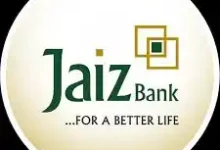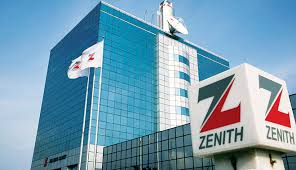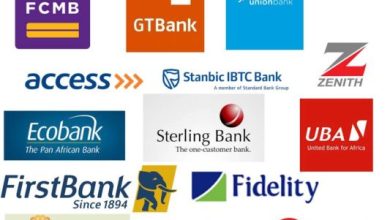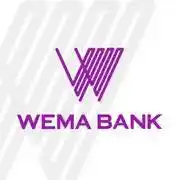Naira to Pounds Aboki Blackmarket Exchange Rate Today
Naira to Pounds Aboki Blackmarket Exchange Rate Today
In Nigeria, the exchange rate between the British Pounds Sterling (GBP) and the Naira (NGN) is a topic that often brings forth conversation and concern among citizens. Many Nigerians turn to the black market for currency exchange because the rates there are often higher than those offered by banks.
In this article, I have provided details on the current naira to pounds aboki black market exchange rate today including some information you may need to be aware of.
The Current Naira to Pounds Aboki Blackmarket Exchange Rate Today

As of today, the black market exchange rate for Pounds to Naira stands at:
Buying Rate: N1185
Selling Rate: N1195
Please always bear in mind that this rate can fluctuate daily, sometimes significantly, and is influenced by various factors, including supply and demand dynamics, economic conditions, and geopolitical events.
Why the Black Market?
The question that often arises is, “Why do so many Nigerians prefer the black market for currency exchange?”
The answer lies in the substantial difference between the black market rate and the rate offered by banks.
While the official CBN exchange rate may be more stable and controlled, it often lags behind the black market rate.
The black market rate tends to be higher because it operates with fewer restrictions, allowing it to respond more quickly to changing market conditions.
Read: Naira to Dollar Aboki Black Market Exchange Rate Today
This creates an attractive opportunity for those looking to exchange their foreign currency, particularly the British Pounds Sterling, for Naira.
The Impact on the Nigerian Economy
The disparity between the official CBN rate and the black market rate can have significant implications for the Nigerian economy.
As the Naira’s value declines against the Pound, inflation can creep into the economy, adversely affecting citizens’ purchasing power and overall economic stability.
Possible Solutions
To provide more reasonable GBP to Naira rates in the future, the government and the CBN could consider the following measures:
Market Reforms: Implementing market reforms to reduce the gap between official and black market rates.
This could involve adopting a more flexible exchange rate policy that allows the Naira to find its true market value.
Economic Diversification: Diversifying the Nigerian economy to reduce its reliance on oil exports, which can make the Naira susceptible to fluctuations in global oil prices.
Foreign Investment: Attracting foreign investments and encouraging foreign exchange inflows to stabilize the Naira’s value.
Transparency: Ensuring transparency in the foreign exchange market to reduce speculative activities and illicit trading.
Read Also: How To Upgrade Your Moniepoint Account Easily in 2023
Financial Education: Promoting financial literacy among citizens to help them make informed decisions when dealing with foreign exchange.
FAQs On The Current Naira to Pounds Aboki Blackmarket Exchange Rate Today
Here are some frequently asked questions on The Current Naira to Pounds Aboki Blackmarket Exchange Rate Today with answers to each:
What is the black market exchange rate for today?
As of today, the black market exchange rate for Pounds to Naira varies, but it’s approximately N1185 for buying and N1195 for selling one British Pound.
Why is the black market exchange rate higher than the official rate?
The black market rate is always higher due to fewer restrictions and more responsive pricing to market conditions.
It reflects the demand and supply dynamics in the informal currency market.
Is it legal to use the black market for currency exchange in Nigeria?
The use of the black market for currency exchange is not illegal, but it operates outside the regulatory framework of the Central Bank of Nigeria (CBN).
Users should exercise caution and be aware of the risks associated with the black market.
How does the black market exchange rate affect the Nigerian economy?
The disparity between the official and black market rates can lead to inflation and instability in the economy.
A weaker Naira can erode citizens’ purchasing power and hinder economic growth.
What can the government do to narrow the gap between official and black market rates?
The government can consider market reforms, adopting a flexible exchange rate policy, diversifying the economy, attracting foreign investment, and ensuring transparency in the foreign exchange market.
How can I protect myself when using the black market for currency exchange?
To protect yourself, research the current market rate, verify the authenticity of the currency, and be cautious of counterfeit notes.
It’s also advisable to transact with reputable currency dealers.
What’s the difference between the black market rate and the official CBN rate?
The black market rate is unregulated and tends to be higher due to market dynamics.
The official CBN rate is controlled by the central bank and is often more stable but may not reflect the true market value of the Naira.
Can I exchange Pounds for Naira at banks in Nigeria?
Yes, you can exchange Pounds for Naira at banks in Nigeria, but the rate offered at banks is usually lower than the black market rate and may be subject to regulatory controls.
How often does the black market exchange rate change?
The black market exchange rate can change daily, and sometimes even multiple times within a day, depending on factors like market demand, supply, and global economic events. It’s a highly volatile market.








